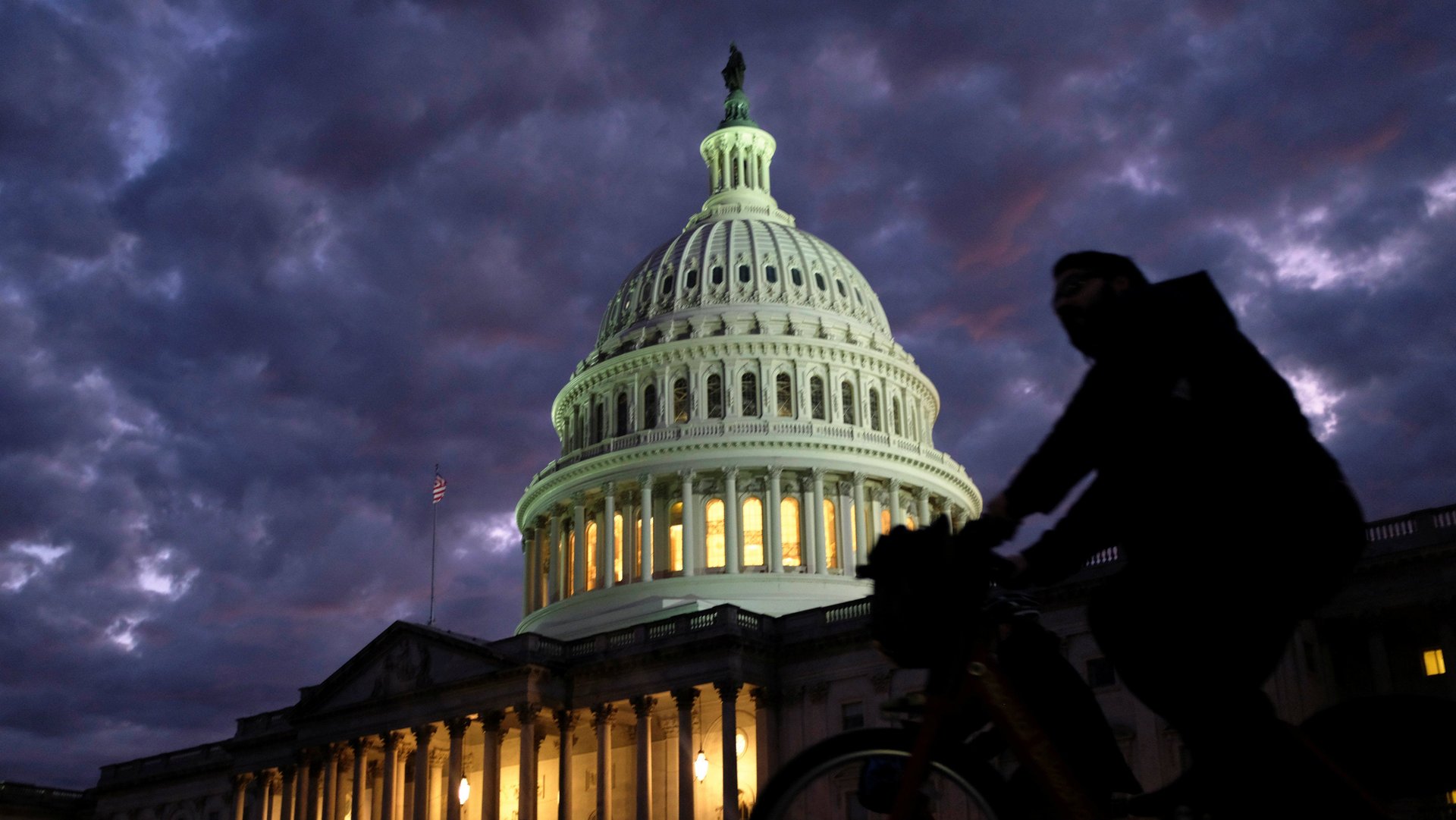Democrats want to keep Facebook out of finance—by law
Many have wondered whether Big Tech will some day find a way to disrupt the financial industry. Some US lawmakers want to stop this from ever happening.


Many have wondered whether Big Tech will some day find a way to disrupt the financial industry. Some US lawmakers want to stop this from ever happening.
A proposal to bar large technology companies from issuing digital currencies, or acting as financial institutions, is making the rounds at the Democrat-led House Financial Services Committee, according to Reuters. The draft legislation, which would face major obstacles and opposition should it ever move forward, follows the announcement last month that Facebook and 27 other partners plan to launch a cryptocurrency called Libra next year.
The draft legislation, “Keep Big Tech Out Of Finance Act,” appeared to take aim at Facebook, adding to the widespread government backlash to its Libra cryptocurrency. The draft proposes a fine of $1 million per day for violating its rules, and defines a large technology company as one that primarily offers an online platform service and has at least $25 billion in yearly revenue, Reuters reported. The draft proposes that these platforms will not be allowed to create or operate digital assets.
Facebook and the House Financial Services Committee couldn’t immediately be reached for comment.
Skepticism about Facebook’s cryptocurrency is one of the few things that government leaders around the world seem to agree on. Because of the social network’s scale and reach, Bank of England governor Mark Carney said last week that Libra would have to be “rock solid right from the start, or it’s not going to start.’’
Libra is on the agenda at the meeting of G7 finance ministers in Chantilly, France this week, and Japanese officials have set up their own working group to discuss the digital token before the G7 meeting. Last week, the US president criticized Libra and cryptocurrencies in general, and said Facebook would have to be regulated like other banks if it offered banking services.
The prospect for Big Tech to move onto the turf of big banks has been talked about for years, but generally hasn’t materialized. While Google, Apple, and Facebook offer mobile payments through apps, these services haven’t caught on widely, and the US tech giants have mostly steered clear of the more regulatory-intensive services like lending. But Libra’s announcement signaled to the industry that Mark Zuckerberg’s company is looking to further blur the lines between the sectors.
David Marcus, Facebook’s blockchain lead, is expected to testify before the US Senate Banking Committee and the House Financial Services Committee on the project this week. “We believe in and are committed to a collaborative process with regulators, central banks, and lawmakers to ensure that Libra helps with the kinds of issues that the existing financial system has been fighting, notably around money laundering, terrorism financing, and more,” Marcus wrote in a Facebook post earlier this month. “Libra should improve detection and enforcement, not set these back.”
Libra is significantly different than cryptocurrencies like bitcoin. The digital asset will be linked to a basket of fiat currencies like the US dollar, making it dependent on monetary policy and financial decisions of those government authorities.
A separate, regulated subsidiary called Calibra will act as a wallet for the currency. Facebook and its partners, which include companies like Visa and Uber, say the plan is to make sending money as easy as sending email, and that Facebook will never be in control of the Libra digital currency. They’ve played up the financial inclusion aspects of the plan, which could reduce cross-border remittance costs and potentially bring unbanked consumers into the formal financial system.
“We are committed to taking the time to get this right,” Marcus wrote. “This was the whole reason for sharing our plans early.”